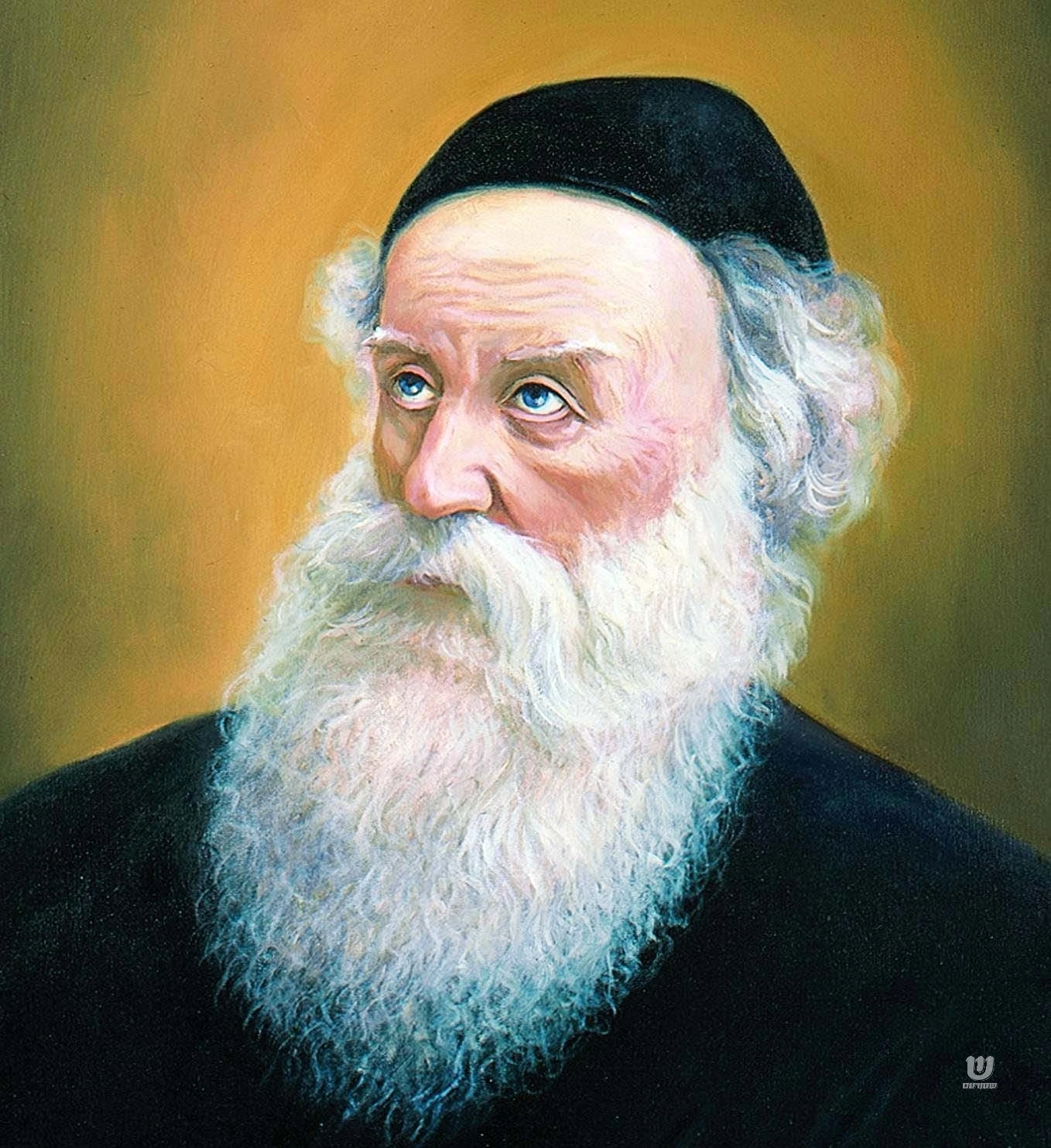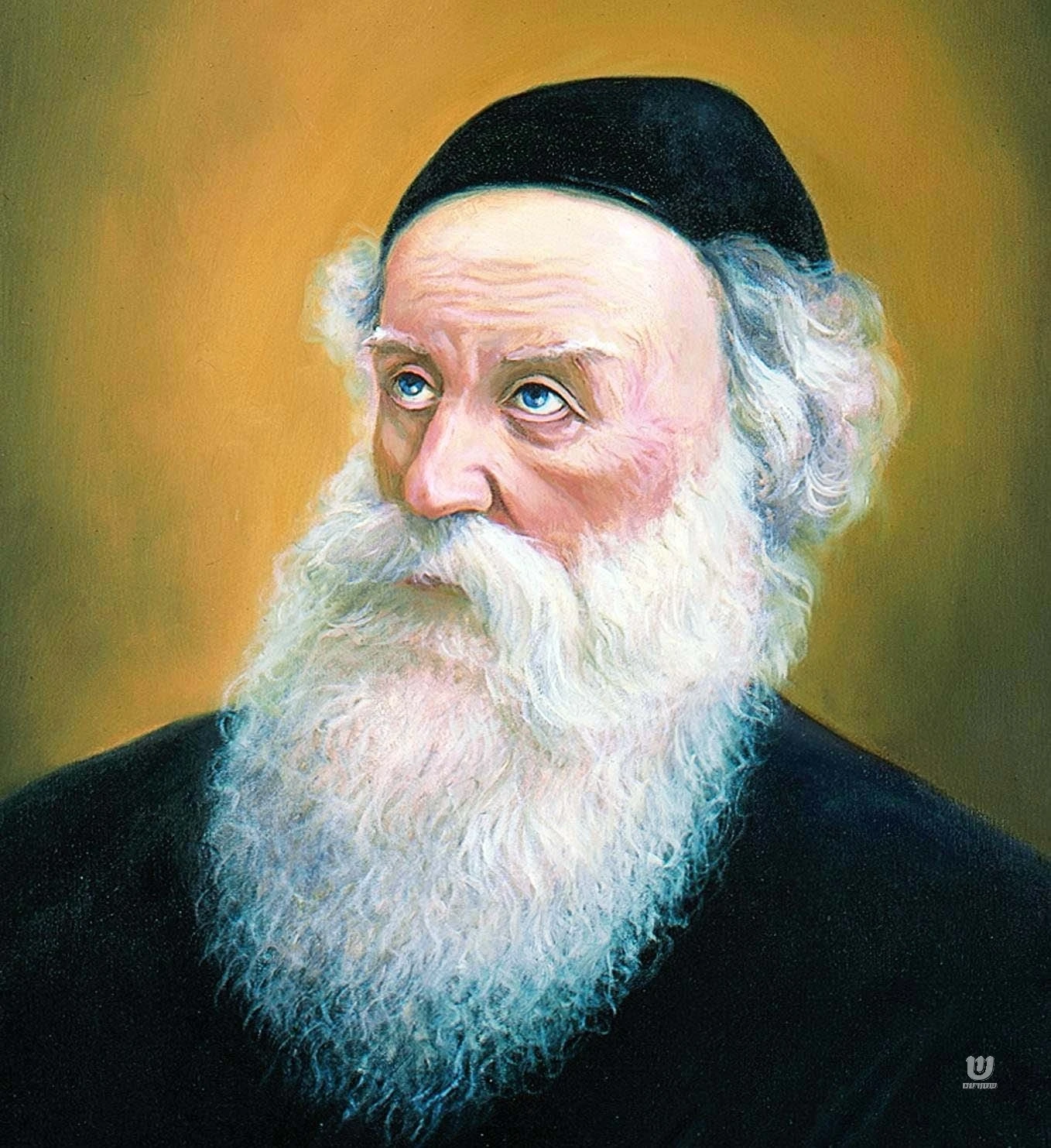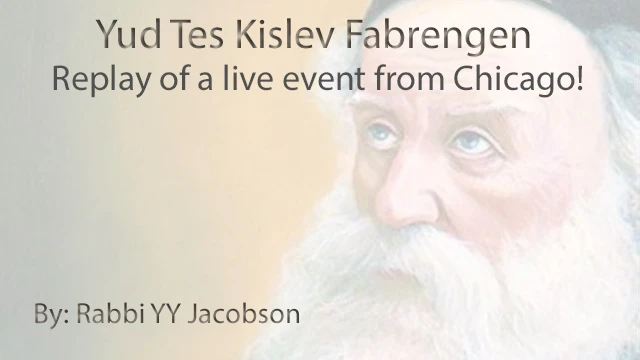Yud Tes Kislev 5771 (2010) Fabrengen: One Good Morning Changed the World
An Evening of Song and Inspiration in Flatbush, NY
- November 25, 2010
- |
- 18 Kislev 5771
Rabbi YY Jacobson
1445 צפיות- 26תגובה
- התקשרות
האזינו לכיתה בטלפון
שִׂיחָה +1 (845) 201-1933
כשתתבקש, חייג את מספר הזהות שלהלן.
153 MP3 MP4 דפי מקורות - העתק הטמעה
Dedicated by David and Eda Schottenstein In the loving memory of Rabbi Levi Yitzchak ben Zalman Yuda Deitch and Alta Shula Swerdlov And in honor of the birth of their daughter Yetta Alta Shula, "Aliyah,"
סיכום השיעור:
Yud Tes Kislev 5771/2011 fabrengen, at Mayan Yisroel, in Flatbush, NY.
Talk 1: Yosef asks two prisoners: “Why are your depressed today?” and as a result of this question, the world is saved from hunger. Chassidus shows the path to a life filled with joy and celebration based on the awareness that G-d is everywhere and in everything.
Talk 2: Chassidus is the “Song of Songs” of Judaism—that biblical book which taught us that earth is a mirror of heaven, that physical love can be an expression of spiritual love, and that G-d and the world are one. The definition of true holiness in Judaism—when it elevates and sanctifies the ordinary matters of life. Why did Rabbi Akiva call the Song of Songs “the holiest of the holy?” Why was the tribe of Levi given the gift of holiness?
Talk 3: The Chassidic explanation for the rift between Yosef and his brothers—for Yosef taught the path of integration, of revealing the Onenss of G-d within a fragmented and lowly world. The secret of the Kesones Passim, the colorful tunic which Yaakov made for Yosef. Chassidus revealed the essence of the revolutionary idea of Judaism—that even nature is a manifestation of Divine energy.
Talk 4: The explanation of the Lubavitcher Rebbe in a story where the Alter Rebbe said of a young Chassid Reb Isaac of Homil: “A young man can become an old man.” There are two approaches how to reach our desired goals in life. One is by emphasizing the void; the other is by behaving as though we have accomplished our goals. Chassidus teaches the latter path. You are never a victim of your condition; you generate the energy that comes back to you from other people.
Talk 5: A fascinating Midrash about Reuven, Aaron and Boaz teaches us about the power of each of our thoughts, words, and actions. We never realize the impact of our actions and gestures. Chassidus blew a new vitality into a spiritually comatose Jewish nation. It also planted a little of the Moshiach-light in a long and dark exile. It is this consciousness we need today.
תגים
קטגוריות
Rabbi YY Jacobson
- November 25, 2010
- |
- 18 Kislev 5771
- |
- 1445 צפיות
Dedicated by David and Eda Schottenstein In the loving memory of Rabbi Levi Yitzchak ben Zalman Yuda Deitch and Alta Shula Swerdlov And in honor of the birth of their daughter Yetta Alta Shula, "Aliyah,"
שיעורים בסדרה זו
אנא עזרו לנו להמשיך בפעילותנו
הרשמה לקבלת תוכן (באנגלית) עדכני מאת הרב יוסף יצחק ג'ייקובסון
צרפו חברים ומשפחה לקבוצת הווסטאפ שלנו
צרפו חברים ומשפחה לקבוצת הווסטאפ שלנו














אנא השאירו את תגובתכם למטה!
Deborah -12 שנים לִפנֵי
Thank you Mark
Thanks you Mark Tanzer for adjusting our view of what Nietzsche was really saying. Your words allowed me to see that where we come from informs our attitudes. I think you got it right and that the preconceived notions of the religious world often use a lens that bends toward their own ideas of the outside world. Too bad because both are paths to G_d.
השיבו לתגובה זו.סמן את התגובה הזו.
Serge -13 שנים לִפנֵי
thanks
Your essay is the best and most helpful I have ever read on the subject, I thank you for your heart and soul that went into it.
השיבו לתגובה זו.סמן את התגובה הזו.
David Morrison/Ben Moshe -13 שנים לִפנֵי
Letters to Nietzsche
I am the author of The Secret of the Jews: Letters to Nietzsche. I am a "Torah-observant" "Frum" "Shomer Shabbas" Jew and I am an unbending, long-time admirer of and supporter of Chabad. I gave presentations of my book in both Chabad Intown of Atlanta and Chabad in Birmingham, Alabama. On the back cover of my book are the following words by Shalom Dovber Liposkar, Chabad Rabbi of the Shul of Bal Harbour:
Fascinating book. This masterful construction of the most profound and fundamental concepts of Judaism in the form of a correspondence follows the effective style of Samson Raphael Hirsch's Nineteen Letters and Rabbi Yehuda Halevi's classic Kuzari. ...To evoke Nietzsche's phi8losophy and perspective as a positive background wherein Jewishness excels and stand out is a very novel approach that will undoubtedly excite scholars and lay people alike. For those searching for the truth The Secret of the Jews is an invaluable contribution to the existing literature. This is a work which I highly recommend.
The book will be available as an e-book in 1-2 weeks at http://www.peopleoftheebook.... In my book, there are many hundreds of footnotes and quotes from Nietzsche's writing alongside our sacred texts. I will cite a few. The main point to be made is that linking NIetzsche to Nazi thought, directly or indirectly is an unjust slander. A.L. Benjamin's comment above that As a further aside, "you should also consider that Nietzsche disowned (or at least was extremely displeased with) his åsister, either because she was an anti-semite or because she was married to one," is correct yet understated (see Peters, H.F, Zarathustra's Sister: The Case of Elisabeth and Friedrich Nietsche, New York:Crown, 1977) . A few quotes from Nietzsche follow:
1) "One pays heavily for coming to power: power makes stupid. The Germans, once called the people of thinkers, do they still think at all today? The Germans are now bored wtih the spirit...Ddutschland, Deutschland uber alles, I fear that was the end of German philosophy."
2) The Will to Power. A book for thinking, nothing else. That it is written in German is untimely to say the least.: I wish I had written it in French, so that it might not appear as a confirmation of any reichdeutschen aspirations.
3) "The Jews...are beyond doubt the strongest, toughest, and purest race not living in Europe; they know how to prevail even under the worst conditons...The Jews, if they wanted it - or if they were forced into it, which seems to be what the anti-Semites want - could even now have preponderence...over Europe; that they are not working and planning for that is equally certain."
4) "The meaning of our cheerfulness - the greatest recent event - that "God is dead,' the the belief in the Christian [emphasis mine] god has become unbelievable - is already beginning to cast its first shadows over Europe."
5) That we find no God...is not what differentiates us, but that we experience that what has been revered as God, not as "godlike" but as miserable...If one were to prove this God of the Christians to us, we should be even less able to believe in him."
6) "Anyone who believes in culture is thereby saying: 'I see above me something higher and more human than I am; let everyone help me to attain it...it is hard to create in anyone this condition of intrepid self-knowledge because it is impossible to teach love; for it is love alone that can bestow upon the soul, not only a clear, discrimination and self-contemptuous view of itself, but also a desire to look beyond itself and to seek with all its might for a higher self as yet still concealed from him."
7) [Five of Nietzsche's many aphorisms].
a) Quiet Fruitfulness - The born aristocrats of the spirit are not too zealous; their creations appear from the tree and fall on a quiet autumn evening...not quickly pushed aside by something new. The desire to create c0ontinuously is vulgar and betrays jealousy, envy, ambition..."
b) Lack of Friends - A lack of friends may be put down to envy or presumtion. Many owe their friends only to the forunate circumstance that they have no occasion for envy.
c) Retarded and anticipatory men - The unpleasant character who is full of mistrust, consumed with envy whenever competitors or neighbors achieve a success, and violently opposes all opinions not his own, demonstrates that he belongs to an earlier stage of culture and is thus a relic.
d) Acknowledging heirs - He who has founded something great in a selfless attitude of mind takes pains to rear heirs for himself. To see an opponent in every possible heir of one's work and to live in a state of self-defense against them is a sign of a tyrannical, ignoble nature.
e) What is needed first - A man who refuses to become master over his wrath, his choler and revengefulness, and his lusts, and attepts to become a master in anything else, is as stupid as the faqrmer who stakes out his field beside a torrential stream without protecting himself against it.
I look forward to dialogue with those interested in this subject.
[email protected]
השיבו לתגובה זו.סמן את התגובה הזו.
Vicent -13 שנים לִפנֵי
never mind
Who cares what these so called philossofers or how the heck do you write this word have to say?
Specially Mr Nietsche. G'd is dead? Really? Don't make me laugh.
This snake's vernom, I can not read this. I want to, but I never can. It makes no sense. Do not read this. Do not pay attention.
Forget his name.
Do not bring this back to the surface.
Do not honor it this way.
Just ignore. Just laugh about it.
Just forget.
Snake is psychology also.
Snake is philosofy also.
They see nature behind the miracle.
I see miracle behind nature.
השיבו לתגובה זו.סמן את התגובה הזו.
Naomi -13 שנים לִפנֵי
Excellent article
Thank you so much for your excellent article. It is so good to see a reconciliation between the G-dly and the seemingly un-G-dly. And G-d Himself brings us to this point -- "Come to Pharo"! I hope that soon the inner G-dly nature of everything will be revealed in this physical world. Thanks again.
השיבו לתגובה זו.סמן את התגובה הזו.
Carl -13 שנים לִפנֵי
Transform, Don't Vanquish
I was just teaching a text on Nietzsche's "God is dead" and read Rabbi Jacobson's commentary with interest. I suppose that, with more adversaries like Nietzsche – strong, honorable adversaries who challenge what we feel to be best in us – our demands for justice and compassion – with more adversaries like Nietzsche we would need fewer friends.
Perhaps sometime I can read the posthumous pages of the Tanya as a foreshadowing of what would – not vanquish, I hope – but transmute Nietzsche, as I feel sure he himself desired. Meanwhile, for what this is worth: There is the oceanic element in us which we discover when we dissolve that structure called "ego", and which mirrors the divine boundlessness (or "spirit" in the terms of the essay). But there is perhaps something else too which mirrors the divine essence – the very core of personality. Here we would be most like God, and at the same time most truly creatures (other than God). I wouldn't know what to call it, though. I would hardly call it the "ego".
I have the impression of its not being born in most of us, of its waiting, waiting to born.
השיבו לתגובה זו.סמן את התגובה הזו.
Me -13 שנים לִפנֵי
You Got It Wrong
Your analysis of Nietzsche is not correct, beyond superficialities.
Here's the enduring point of his philosophy: When a subject accepts a representation of truth without question or skepticism, that subject has missed the possibility for actually finding living truth. In this sense theology and philosophy of all kinds, especially since Plato, have brought about the death of G-d (with a thousand cuts)...and it continues. The test: take your accepted truths, and rather than professing them, keep them in mind and take a look at things as they actually are in your own community.
Do you see the disconnect? You can't, nor can you do anything about it, if you are blind to it by your subjective understanding of truth or what it should be. Mere repetition of ideals -- a worthy attempt to educate no less -- is not going to be enough to redeem truth.
In accordance with this, the perpetuation of Nietzschean name-calling is a questionable endeavor.
השיבו לתגובה זו.סמן את התגובה הזו.
C. Levine -13 שנים לִפנֵי
A Big Question
This is a most interesting essay. It leaves me with a question however, from which I’ve never received a satisfactory answer: There are many people who commit terrible evil in the name of G-d (e.g. the current wave of Islamic terrorism). G-d becomes the justification for their atrocities. Based on the truths explained in this essay, that the ego is rooted in G-dliness, it would seem that G-dliness itself can be perverted. The problem is greater than divorcing ones ego from divine moorings.
It is also correctly recognizing the implications of the divine connection. How does one deal with a group of people who are utterly convinced that all the evil they perpetrate is a divine imperative. They will exercise the utmost discipline, self-sacrifice, divorcement from worldly matters, etc. to destroy the lives of others. It is an Amalek type quality. But unlike Amalek, who knew G-d but rebelled against him, these people honestly believe they are acting on his behalf.
One could perhaps argue that the G-d which they purport to serve is really an extension of their own ego, which they mistakenly believe to be the true G-d. If so, than the problem is even more pernicious than that of Pharaoh, who denied a power greater than himself.
C. Levine
השיבו לתגובה זו.סמן את התגובה הזו.
A.L. Benjamin -13 שנים לִפנֵי
You Missed the Point
I realize that the point of your essay was not to give a full and complete
account of Nietzsche. You either know, or should know, that much of what
Nietzsche wrote cannot be taken at face value, as he himself said (in the
mouth of Zarathustra), "profundity loves a mask."
Talking about what
Nietzsche thought or believed is like asserting Shakespeare thought this or that idea. We only know what Shakespeare's characters thought, not what he himself thought. Nietzsche's writings are full of contradictory postures.
"G-d is dead" does not mean that there is no G-d, in fact it implies that He was once alive and well in the hearts and minds of men, but now to our great misfortune is "dead," as the madman laments in the passage of the "Madman in the Marketplace."
In the madman's agonizing eulogy, "God is dead" is a tragedy beyond all figure -- "the Earth has been unhinged from its anchor!"
As a further aside, you should also consider that Nietzsche disowned (or at least was extremely displeased with) his sister, either because she was an anti-semite or because she was married to one.
Regards,
A.L. Benjamin
השיבו לתגובה זו.סמן את התגובה הזו.
Dr. S. Longhorn -13 שנים לִפנֵי
Will For Power vs. Will of Power
Your essay on Nietzsche was one of the best I have ever read. As a professor of philosophy I was impressed by the fact that you did not easily dismiss Nietzsche as an outright anti-Semite nor did you exalt him. You presented a balanced view.
You did however confuse the terms "Will of Power," with "Will for Power." The two terms are not synonymous in Nietzsche's writings. They are in facts worlds apart. Besides, I felt that your criticism of Nietzsche from an objective standpoint was a bit too meek.
Dr. S. Longhorn
השיבו לתגובה זו.סמן את התגובה הזו.
Lawrence M. Flait, Esquire -13 שנים לִפנֵי
Fascist vs. Democratic Art
Many thanks for profoundly well written essay integrating the spiritual, historic and cultural. Your essay on the German philosopher Nietzsche, particularly, was extremely well written and researched.
I once had the privilege of hearing a lecture at Lehman College, many years ago, about the difference between art in fascist vs. democratic countries. The fascist countries usually paint in straight lines, chiseled faces and bodies, while the democracies have expressive reflections of emotion and humanity. This echoes the message of your essay.
Lawrence M. Flait, Esquire
השיבו לתגובה זו.סמן את התגובה הזו.
Jeffrey -13 שנים לִפנֵי
Wow!
I love your essays; but your essay "Nietzsche and the Jews" was incredible.
I've been interested in Nietzsche and existentialism for about 30 years and have been consciously pondering its connection to Judaism for about the past ten years. I've never until now come across in writing something that ties so much together.
I've thought about many of the ideas you've expressed in this essay for years and believed that I was probably alone in my musings. Now, it seems that maybe I'm not so far outside of a particular mainstream of thought, although these notions are not bandied about during typical Shabbat discussions.
Jeffrey Langholtz
Portland, Maine
השיבו לתגובה זו.סמן את התגובה הזו.
Mark Tanzer -13 שנים לִפנֵי
Nietzsche Was Misunderstood
First of all, I really enjoyed the essay about Nietzsche and the Jews. It was very much appreciated. Yet I wish to offer some thoughts from an academic perspective.
Nietzsche’s claims about the value of power and his denigration of morality are a tricky business, and there are different ways that philosophers interpret him. A lot depends on how his valorization of “power” is cashed out. As a kind of counter-balance to the interpretation that sees Nietzschean power as power over others (which is a perfectly defensible reading), I would emphasize the extent to which his notion of power often appears not so much as power over others, but rather as power over oneself. This, I think, brings out another aspect of Nietzscheanism that I think puts him in a somewhat more positive light. Here’s what I mean.
Nietzsche often suggests that to be powerful is to have power over oneself in the sense that the powerful are those who are able to constantly transform themselves, to become different from what they are. He sees this as a manifestation of power insofar as he believes that the most fundamental characteristic of all existing things (including people) is the fact that all that exists is in constant flux. A life of stability, then, is an inability to live in accordance with one’s own constantly-changing nature—i.e., it is a form of weakness.
Hence, his critique of the Judaeo-Christian ideal as a sign of weakness, of an inability to transform oneself. This can be seen as the origin of Nietzsche’s critique of morality insofar as a moral code is always an unchanging, stable prescription, or set thereof, articulating norms for how one ought to lead their life. Nietzsche finds this conception of a rigid standard, and of there being one standard for everyone—one picture of what a proper, normal human being should look like—as more dangerous and de-humanizing than a world without a moral code. Particularly, it prevents people from exercising their natural tendency toward self-transformation, self-determination, etc. Thus, morality is life-denying, a form of weakness. Thus, for me, the figure of a true Nietzschean is not a fascist since fascists typically believe in one proper human type (e.g. the Aryan type), but rather the type of people who are constantly changing themselves, adopting new ways of dressing, behaving, believing, etc.
In view of the above, I would say that, for Nietzsche egoism is not good if it it’s the self-aggrandizement in which the aggrandized self does not continually change. So, while for you Rabbi Jacobson, loving one’s ego is valued as long as the ego is not cut off from its source (God), for Nietzsche, too, loving one’s ego is valued as long as it is not cut from its source (the transformational character of all existence). Ultimately, then, their disagreement concerns their differing conceptions of the ground of existence and thus of the true source of one’s ego—i.e., the ground of existence as stable (the religious view) vs. the ground of existence as unstable (the existentialist view).
Mark Tanzer
Proffesor, Existential Philosophy at Metro State College
Denver
השיבו לתגובה זו.סמן את התגובה הזו.
Kayo, Tokyo -14 שנים לִפנֵי
HaShem must be Happy
Baruch HaShem
You should know the ramification of what you say, and what you do. Not just you solved my depression, but you also gave me a tool to deel with depression.I am sorry that I am getting this much but can not contribute to you much.
השיבו לתגובה זו.סמן את התגובה הזו.
Elki -14 שנים לִפנֵי
Gut Yom Tov
Thank you for enabling me to be at a יט כסלוfarbrengen.
The talks, singing and atmosphere were wonderful.
השיבו לתגובה זו.סמן את התגובה הזו.
eliezer -14 שנים לִפנֵי
two hours?
I watched your wonderful fabrengen tonight.
You mentioned that the Alter Rebbe would daven Shachris for 2 hours. Where is the source for this?
Gut Yom Tov!
Eliezer Slavutin.
השיבו לתגובה זו.סמן את התגובה הזו.
Kayo the Schizo -14 שנים לִפנֵי
For a Rashar, sometime it is difficult
Baruch HaShem
I have schizophrenia. There are days, it is difficult to say "Baruch HaShem". Your word on the people who suffering "when you see a person who is suffering....." honestly very much comforted me. To your deep sensitivity and tenderness, Baruch HaShem.
השיבו לתגובה זו.סמן את התגובה הזו.
Jaim -14 שנים לִפנֵי
ha'Gaon Rabbi Abraham Twerski Shlit''a
B''H
i send now a link from a shiur i heard from the Rov Twerski Shlit''a, talking about "simcha" is related with the word "tzomeach"... which means growth...
Here is the link:
http://www.google.com/url?q...
I hope you enjoy it.
השיבו לתגובה זו.סמן את התגובה הזו.
JAIM -14 שנים לִפנֵי
.מהר''ל חדושי אגדות קד בבא בתרא I forget "Bava Basra".
השיבו לתגובה זו.סמן את התגובה הזו.
Jaim -14 שנים לִפנֵי
Leviathan
.מהר''ל חדושי אגדות קד
Please read what the Maharal wrote on the Leviathan.
השיבו לתגובה זו.סמן את התגובה הזו.
Jaim -14 שנים לִפנֵי
commentary
המקבל את חברו בסבר פנים יפות אפילו לא נתן לו כלום מעלה עליו הכתוב כאילו נתן לו כל מתנות טובות שבעולם .אבות דרבי נתן פרק י''ג, ד
Very nice shiurim.
Writting you from Cordoba, Argentina.
השיבו לתגובה זו.סמן את התגובה הזו.
Elki -14 שנים לִפנֵי
shiur
Phew. I didn't get an email or a text message today and was disappointed because I thought there would be no class. So going on the web site and reading the updated information relieved my anxiety! I look forward to Thursday night. I particularly enjoy Rabbi Jacobson's chassidishe farbrengens. Thank you.
השיבו לתגובה זו.סמן את התגובה הזו.
tzipiglick -14 שנים לִפנֵי
tonight
looking forward
השיבו לתגובה זו.סמן את התגובה הזו.
Admin -14 שנים לִפנֵי
To Suri
Farbrengen in Mayan Yisroel in Flatbush, under the leadership of Rabbi Yossi Vigler. For men.
השיבו לתגובה זו.סמן את התגובה הזו.
suri -14 שנים לִפנֵי
I would love to attend this fabrengen. Where is it going to take place?
השיבו לתגובה זו.סמן את התגובה הזו.
Admin -14 שנים לִפנֵי
Program
Program:
Talk 1:
Yosef asks two prisoners: “Why are your depressed today?” and as a result of this question, the world is saved from hunger. Chassidus shows the path to a life filled with joy and celebration based on the awareness that G-d is everywhere and in everything.
Talk 2:
Chassidus is the “Song of Songs” of Judaism—that biblical book which taught us that earth is a mirror of heaven, that physical love can be an expression of spiritual love, and that G-d and the world are one. The definition of true holiness in Judaism—when it elevates and sanctifies the ordinary matters of life. Why did Rabbi Akiva call the Song of Songs “the holiest of the holy?” Why was the tribe of Levi given the gift of holiness?
Talk 3:
The Chassidic explanation for the rift between Yosef and his brothers—for Yosef taught the path of integration, of revealing the Onenss of G-d within a fragmented and lowly world. The secret of the Kesones Passim, the colorful tunic which Yaakov made for Yosef. Chassidus revealed the essence of the revolutionary idea of Judaism—that even nature is a manifestation of Divine energy.
Talk 4:
The explanation of the Lubavitcher Rebbe in a story where the Alter Rebbe said of a young Chassid Reb Isaac of Homil: “A young man can become an old man.” There are two approaches how to reach our desired goals in life. One is by emphasizing the void; the other is by behaving as though we have accomplished our goals. Chassidus teaches the latter path. You are never a victim of your condition; you generate the energy that comes back to you from other people.
Talk 5:
A fascinating Midrash about Reuven, Aaron and Boaz teaches us about the power of each of our thoughts, words, and actions. We never realize the impact of our actions and gestures. Chassidus blew a new vitality into a spiritually comatose Jewish nation. It also planted a little of the Moshiach-light in a long and dark exile. It is this consciousness we need today.
השיבו לתגובה זו.סמן את התגובה הזו.